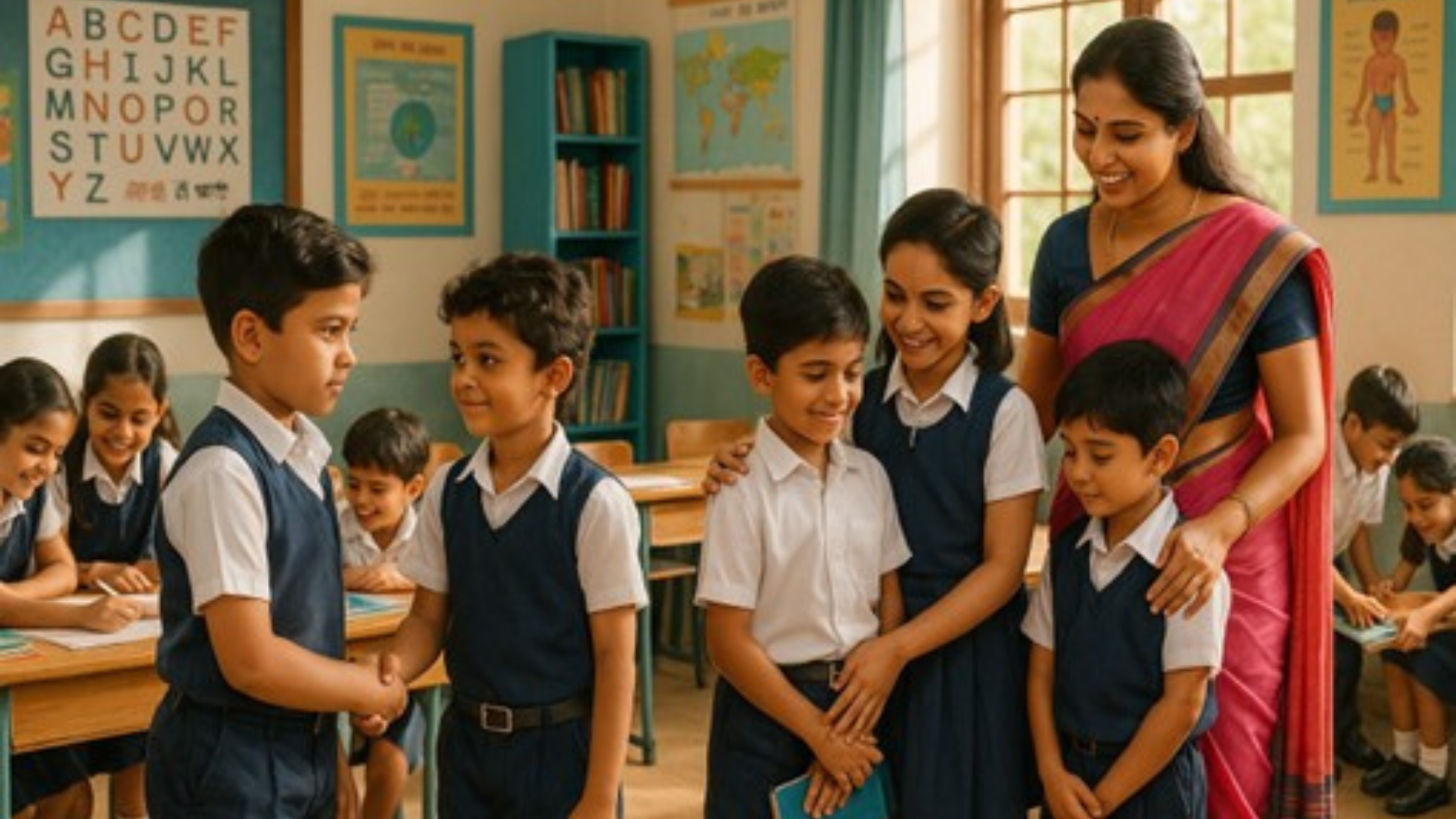“Academic success gets students in the door. Social skills take them through life.”
Walk into any classroom today, and you’ll notice something beyond the usual books and blackboards. Children are learning how to talk to each other, share space, handle disagreements, and simply get along and this, in many ways, is just as important as any subject being taught.
We often associate school with exams, marks, and academic pressure. But schools are also one of the few places left where children can practice being human together. And in today’s world, that’s becoming increasingly rare.
The Changing Childhood: Fewer Siblings, Fewer Conversations
It’s a quiet change, but one that’s affecting how children grow up. Many of our students today are the only child in their family. Without siblings to fight with, make up with, and play alongside, they miss out on many natural lessons in patience, negotiation, and compromise.
Add to that the reality of working parents, rushed evenings, and limited family time and what’s left is a home environment that may be warm, but not always socially active.
So where do children learn to listen, respond, take turns, or say sorry? More often than not, it’s at school.
When Screens Replace Speech
We can’t talk about growing up today without mentioning screens. Phones, tablets, TVs children are using them from a very young age. And while there’s nothing wrong with a bit of technology, it becomes a concern when it replaces real conversation.
Many teachers, myself included have seen this shift. Children now struggle to maintain eye contact, hesitate to speak up in a group, and sometimes find it easier to text than talk. Even understanding facial expressions or picking up on someone’s emotions is becoming harder.
These aren’t just cute quirks. They are signs that something is missing and that something is real-world interaction.
Online “Friends” Aren’t Always Real
Social media gives the illusion of connection. A child may have 500 friends online, but still feel lonely. The world of filters, likes, and comments often leads to anxiety about being left out or not being good enough. Real friendships require patience, effort, and vulnerability; none of which come naturally through a screen.
In schools, however, children get the chance to build actual relationships. They learn how to resolve a disagreement without blocking someone, how to comfort a friend without using emojis, and how to ask for help without fear of being judged. These are real skills and they matter.
Why Social Learning Deserves a Place in the Timetable
It’s time we stop thinking of social skills as something “extra.” They are not optional. They are essential for life, work, and relationships.
When children participate in group projects, classroom debates, or role-playing activities, they learn far more than the subject at hand. They pick up cues about collaboration, respect, and how to express themselves. These are lessons they will carry into boardrooms, families, and communities.
A student who knows how to listen well and speak kindly is often more prepared for the world than one who simply scores high on tests.
What Parents Can Do at Home
While schools are doing their part, parents play an equally big role in nurturing these skills. And it doesn’t take anything fancy, just intentionality.
- Try asking questions that help children reflect on their feelings. For example: “What made you happy today?” or “Did something upset you at school
- Encourage them to greet others properly, thank people without being reminded, and talk through small conflicts instead of walking away.
- Praise efforts like sharing or helping, not just winning or scoring
Even simple role-playing games can teach empathy by acting out what to do if a friend is sad or how to introduce themselves politely.
These everyday conversations make a world of difference.
At Our School, We Make It a Priority
At TGES, we are fully aware of the world our students are growing up in. That’s why we’ve made a conscious decision to treat social development with the seriousness it deserves.
Through class discussions, group activities, value education sessions, and small moments of guided interaction, we ensure that children don’t just grow intellectually, but also emotionally.
Because teaching formulas and facts is important but helping a child become kind, confident, and thoughtful? That’s what we believe truly defines education.
Teaching minds is important. But shaping hearts that’s where real change begins.
Seema Chauhan
Science HOD & CBSE Coordinator


